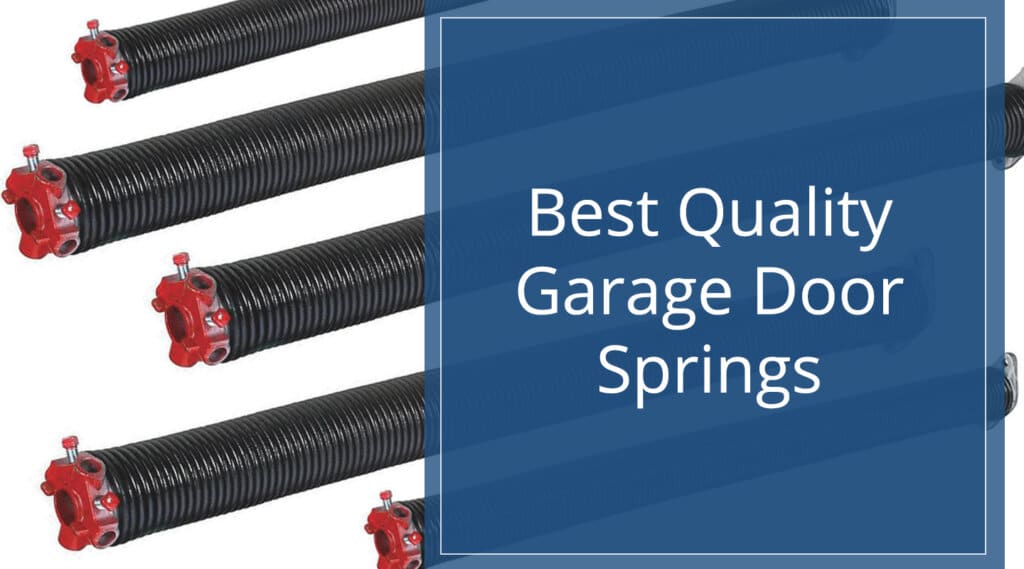
Best Quality Garage Door Springs

Garage door springs are rated in cycles so while there are many great manufacturers available the most important thing to look for in springs is its cycle rating. In this post, we’ll introduce you to the Door & Access Systems Manufacturers Association (DASMA)↗ and tell you more about how to choose the best quality garage door springs for your door system.
Who Is DASMA?
The DASMA is the leading organization in the garage door industry. This organization represents the industry before governmental agencies and code bodies. DASMA promotes efforts to improve product performance and professionalism in the industry. Although DASMA was established in 1996 its history can be traced back to the early 1960s.
DASMA is organized into six divisions representing manufacturers in the following categories:
- Gate Operator & Access Control Point Systems
- Commercial & Residential Garage Doors
- High-Performance Doors
- Door Operator & Electronics
- Rolling Door
- Manufacturers that Supply Raw Materials & Components (Associates Division)
Over the years DASMA has earned a reputation as the voice of the industry. DASMA is accredited by the American National Standards Institute (ANSI)↗ and has developed many standards for the industry.
How to Find the Best Quality Garage Door Springs
You Need to Know the Spring’s Cycle Life
A cycle is one complete movement of a door beginning with the door in the closed position then moving to the open position and back to the closed position.
A cycle rating tells you how many cycles the door can go through before the spring life ends.
- PRO: The cycle rating gives you an idea of how long the springs you purchase will last
- CON: The spring cycle rating does not account for corrosion, misuse, or other factors that accelerate the wear on the springs
Additionally, it’s important to note that spring cycle ratings are not a door life cycle rating. The spring cycle rating is not an indication of how long the garage door will last. Although it is an important component the life of the spring won’t determine the overall health of your door system.
Who Sets the Standards for Cycle Ratings?
The technical committee of the DASMA Commercial and Residential Garage Door Division developed the standard method for testing garage doors. The standard explained below was approved as a DASMA standard in January 2010.
Spring Cycle Ratings
- Standard Torsion Spring Rating: 10,000 cycles
- Ideal Torsion Spring Rating: 100,000 cycles
While the ideal torsion spring rating is 100,000 cycles, many residential garage doors aren’t large enough to accommodate this type of spring. Cycle ratings for torsion springs can range from 5,00 to over 150,000 cycles although most residential high cycle springs stop around 50,000 cycles.
High cycle springs have a larger wire size, length, and diameter.
- Wire size or gauge of the coil becomes thicker
- Length increases
- Inside diameter can increase
Improper door usage can shorten the cycle life of your springs.
Examples of Improper Garage Door Use
- Leaving the door open – this exposes the springs to the elements
- Overusing the door – opening and closing the door frequently causes unnecessary wear
- Using the wrong lubricants – inappropriate lubricants or cleaning chemicals will damage parts
- Not taking care of other garage door components – will lead to a snowball effect of damage
Get the most out of your garage door springs by lubricating the springs twice a year. Avoid improper use and contact a professional if you suspect there are any problems with your door.
Heritage Garage Door has served Southern California homeowners for over 30 years. Explore our website to learn more about us or contact us to schedule a repair, replacement, or installation service.


